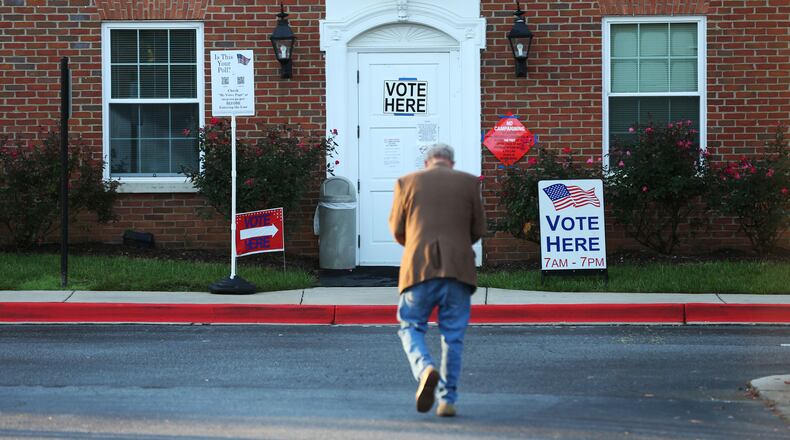A replacement elections board is planning to close all seven polling places in Lincoln County north of Augusta, requiring in-person voters to report to one centralized location.
The poll closures would reduce voting access for rural residents who would have to drive 15 miles or more to cast a ballot in a county with no public transportation options, leading to opposition from voting rights advocates.
The plan is moving forward after a state law passed this year abolished the previous county elections board and gave a majority of appointments to the Republican County Commission. Lincoln is one of six counties where the Republican-controlled Georgia General Assembly reorganized local election boards.
“This is about the powerful flexing their muscles and saying, ‘We can do whatever we want to do, and who’s going to stop us?’ ” said the Rev. Denise Freeman, who is organizing Lincoln voters to oppose the poll closures. “In Lincoln County, it’s always been about power and control.”
The county’s elections director, Lilvender Bolton, said a central voting center near the city of Lincolnton would give voters a single site for both early and election day voting, and it would provide more space than small, little-used precincts.
“We really don’t have room in some of our facilities to do social distancing and to do the things that we need to do to keep my poll workers safe,” Bolton said. “We will be able to set up 30 or 40 voting machines, whatever we need.”
Bolton said most voters wouldn’t be inconvenienced because they usually cast their ballots during three weeks of early voting at a Lincolnton polling place. About 51% of the county’s voters participated in early voting before the 2020 election.
The previous elections board also considered consolidating voting locations, Bolton said. But the proposal didn’t advance until the elections board was replaced this summer.
The remade board is the same as before, with one exception: A Democratic Party appointee was replaced by an appointee of the County Commission, whose five members are all Republicans. The elections board could vote on the poll closure plan Jan. 19.
Lincoln County is a mostly Republican area where Donald Trump received 68% of the vote against Democrat Joe Biden.
A similar proposal to close seven of nine precincts in Randolph County failed in 2018 following protests from the community and voting rights groups.
One difference between the counties is that Randolph’s population is mostly Black, raising concerns about the voting rights of a group with a history of being disenfranchised. Lincoln County’s population is 28% Black.
After an outcry, Randolph’s elections board instead decided to close three precincts in mostly white areas.
“Folks should have access to their polling locations. They should be able to vote without having to drive 30 minutes to get there,” said Cindy Battles of the Georgia Coalition for the People’s Agenda, a civil rights group that has been collecting voter signatures for a petition drive to try to stop the closures.
There’s no public transportation available in Lincoln County, nor are there taxis, Uber or Lyft. Anyone who wants to vote would have to drive or walk to a polling place, or return an absentee ballot. Turnout decreases when voters have to travel farther to cast a ballot, according to a statistical analysis by The Atlanta Journal-Constitution.
Absentee voting also comes with new rules in Georgia after the General Assembly passed a statewide voting law this year. The law, Senate Bill 202, limited ballot drop boxes, added ID requirements, tightened absentee ballot request deadlines and restricted mass mailings of absentee applications to voters.
Polling places can be closed by a majority vote in Lincoln County, and the federal government has no oversight role. A 2013 U.S. Supreme Court decision removed requirements of the Voting Rights Act for states with a history of discrimination, including Georgia, to obtain federal preclearance before making changes to voting practices and locations.
County election boards closed 214 precincts across Georgia between 2012 and 2018, nearly 8% of the state’s polling places, according to a count by The Atlanta Journal-Constitution.
About the Author
Keep Reading
The Latest
Featured




